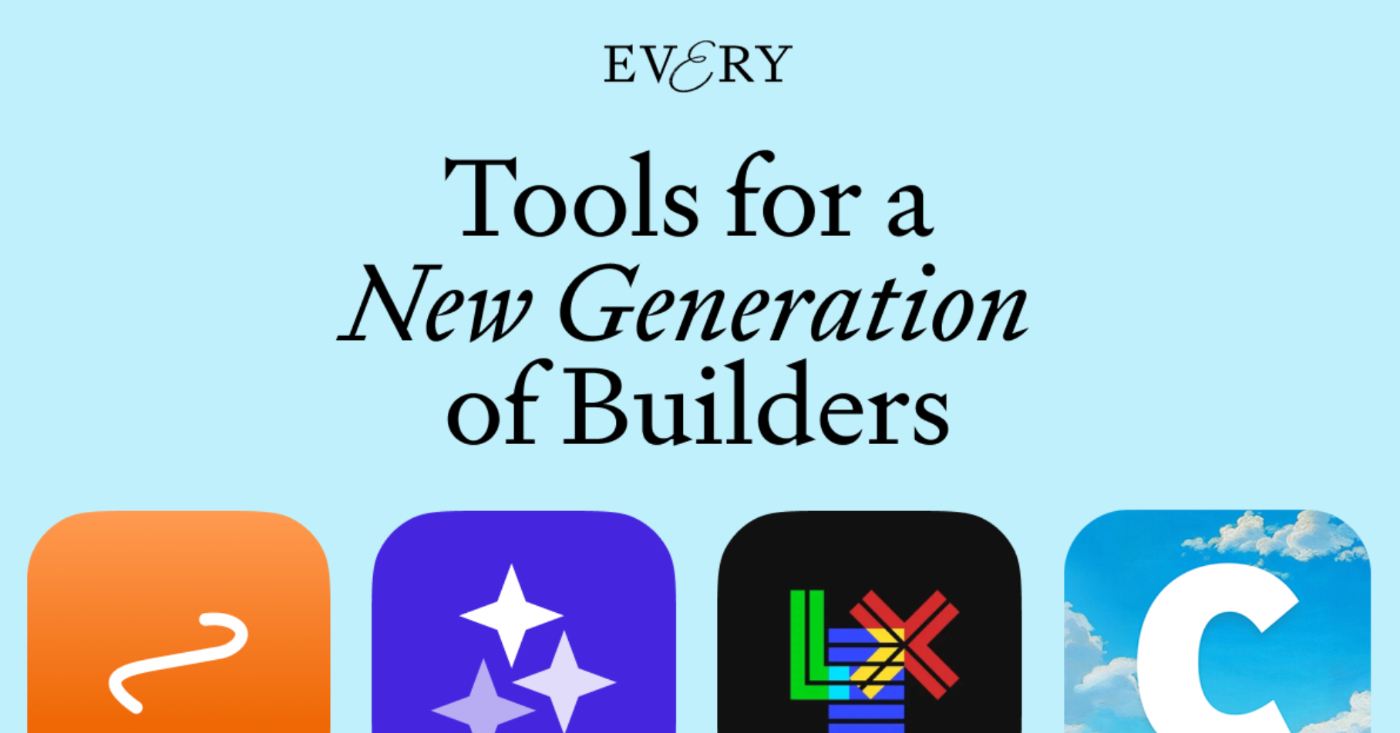
Hello, and happy Sunday! It’s a new year, but we’re still talking about artificial intelligence. In this edition, we have predictions for the year ahead in AI, courtesy of Alex Duffy, with aspirations as well as tempered expectations.—Kate Lee
Was this newsletter forwarded to you? Sign up to get it in your inbox.
Release notes
The great AI divide of 2025
Tech leaders across the board have been making predictions about AI’s trajectory in 2025. OpenAI’s Sam Altman predicted artificial general intelligence (AGI), open-source machine learning platform Hugging Face's Clément Delangue forecasted the first major anti-AI protest, and Adobe’s Scott Belsky put forth his vision for a DIY software revolution.
While opinions vary, most tend to agree that:
- AI capabilities dramatically improved.
- Progress is not slowing down.
- There’s a vast gap between super-users and casual users.
After reading more than 20 recaps of 2024 and predictions for this one, it’s clear to me that 2025 won't be about AI versus humans, but rather about those individuals and organizations who harness AI effectively versus those who don't.
The agent evolution (not revolution)
While the most wishful thinkers might imagine general-purpose AI agents becoming adept enough to solve any problem, it’s more likely 2025 will see the rise of specialized agents tackling very specific, measurable problems. It’s not that AI agents are “coming of age” but that LLMs are getting better at autonomously completing tasks. They could help surgeons reduce complications or manufacturers optimize production lines. Success isn't about passing standardized tests like AI models are often asked to do to; it's about solving real problems with a clear return on investment.
Small teams, massive impact
The most exciting trend isn't just about AI cutting costs (and therefore boosting profits)—it's about empowering individuals. A gardening expert with AI tools can build a successful business. A researcher with AI-powered lab automation can accelerate scientific discovery.
Sponsored by: Every
Tools for a new generation of builders
When you write a lot about AI like we do, it’s hard not to see opportunities. We build tools for our team to become faster and better. When they work well, we bring them to our readers, too. We have a hunch: If you like reading Every, you’ll like what we’ve made.
Two clear areas of value jump out: First, AI can help passionate experts focus on what they do best and delegate grunt work. And second, leaders can give well-defined tasks to AIs to aid their subject matter expertise, such as asking them to comb through news and research papers and find connections with existing work.
The biology breakthrough
Healthcare and biology remain one of the most promising frontiers. As Anthropic's CEO Dario Amodei suggests, we're looking at compressing decades of progress into years. AI-enabled drug discovery, disease prevention, and improved baseline human health are moving from possibilities to probabilities. The limiting factor isn't AI capability, but rather the speed of physical world testing and regulatory frameworks.
The open-source factor
While proprietary AI models will maintain their performance edge, open-source alternatives will become increasingly viable. Meta has been an open-source proponent with its Llama series of models; however, China's growing influence in open-source AI will drive competition, keeping prices down and spurring innovation. This tension between closed and open approaches will define market dynamics.
The reality check
Not everything happens as fast as the hype suggests. Physical world integrations like AI-powered robots will progress much more slowly than pure software applications. Remember: Tesla's autopilot system (first announced in 2014) took a decade to reach today's capabilities with Waymo finally delivering more than 150,000 paid rides a week. Real-world atoms move slower than digital bits.
The bottom line
2025's greatest challenge won't be technological—it will be societal. The gap between AI-enabled individuals and organizations and those who fail to adapt will widen dramatically. Success won't just come from having the best AI, but from best understanding how to apply it to real problems.
No one can know for sure what happens as individuals become more capable than they ever have been in history, but for builders, the message is clear: Focus on solving real problems you deeply understand.—Alex Duffy
Knowledge base
If you prefer to listen to rather than read our stories, we’re now live on ElevenLabs’s ElevenReader app. Download the app and subscribe to our feed to listen to audio versions of our essays voiced by AI.
"What One Organizational Wizard Knows About Notion" by Scott Nover/Superorganizers: Five years after showing us the most impressive Notion setup we'd ever seen, digital ecosystem expert Marie Poulin is back with insights on how AI has reshaped her toolkit. She's embracing AI—albeit cautiously—as a way to compensate for ADHD-related challenges with structure and linearity. Read this for an honest look at how productivity systems evolve with personal growth and technological change.
"Why This Entrepreneurial Journalist Doesn’t Fear AI" by Scott Nover/Superorganizers: The last time Dan Shipper spoke to Polina Pompliano, she was a year into writing The Profile; today, she’s juggling two kids and 20-minute work windows in between parent duty. Since then, Polina’s traded Google Docs for Notion and added AI to her writing process—but she’s not editing out human error. Read this if you want to be reassured that imperfections in creative work will become more valuable, not less.—Aleena Vigoda
Fine tuning
Accounting startup Bench is being acquired by Employer.com, a bootstrapped venture founded by former Recruiter.com CEO Jesse Tinsley. On Friday of last week, Bench, which has raised $113 million, announced a sudden shut-down three years after its founder was booted by the board; on Monday, Tinsley announced the acquisition. On Deck CEO Julian Weisser details the 48-hour sale.
Nvidia completed its $700 million acquisition of Run:ai, an open-source Israeli startup that helps companies manage and optimize their chips for on-site and cloud workflows. Nvidia plans to keep the software open source, in large part to ease antitrust pressures on future acquisitions—China previously launched an investigation into the company’s 2020 acquisition of hardware company Mellanox.
Defence tech companies Palantir and Anduril are spearheading a consortium to collectively bid for Pentagon projects, as a play against the U.S. government’s incumbent contractors like Lockheed Martin and Boeing. Companies currently in conversation include SpaceX, OpenAI, Scale AI, and autonomous-ship builder Saronic.
President-elect and TikTok influencer Donald Trump is opposing the platform’s impending sell-or-ban ruling—a massive pivot from his pro-ban stance in 2020. Trump has nearly 15 million followers and credits the platform with helping him gain the youth vote in the recent election—Jeffrey Yass, a prominent donor to Trump’s campaign, is also a major investor in TikTok.
The U.S. Court of Appeals for the Sixth Circuit overturned the Biden administration's efforts to restore net neutrality, which prevents broadband internet providers from favoring or blocking specific sites and apps. The Federal Communications Commission first approved net neutrality under Obama in 2015 and repealed it during Trump’s first term. The ruling comes less than a year after the Supreme Court ended the longstanding Chevron doctrine, which gave broad legal discretion to federal agencies.
Editors of Elsevier’s Journal of Human Evolution quit in protest of the publication’s use of AI; this marks the 20th mass resignation of academic journal editors due to ethical publishing practices since 2023. AI has the potential to reimagine scientific discovery beyond research papers, but questions around democratized content reproduction and data ownership are unresolved.
Github uncovered 3.1 million fake “stars” (equivalent to likes) across 15,835 public repositories—the majority of which are intended to boost the popularity of scam and malware projects. In December, ransomware turned 35; as AI agents dominate the web, increasingly sophisticated phishing schemes will be unleashed.—AV
Alignment
The return of the blog. Meta will soon fill your Instagram and Facebook feeds with AI characters that have profile pictures, bios, and the power to create content. They'll be designed to engage Generation Z with perfectly calibrated slop that seems real but tastes like room-temperature water. Technically drinkable, soullessly bland. Watch this trigger the great migration back to blogs. As neuroscientist Erik Hoel writes, blogs are “one of the last bastions of the Good Internet.” No engagement metrics. No optimization engines. When your feed becomes an endless scroll of AI-generated theater, you'll crave something real—with writers like Terrence Tao revealing beauty in mathematical thinking or Nabeel Quereshi offering a new way to think about mental models. In these messy corners of the internet, insight trumps engagement. And they're still here—scattered across personal sites, Substacks, and news outlets' back pages. Original thinking will find its home again in these quiet corners. After all, the cycle of tech is predictable. In 2010, social media killed blogs. In 2025, AI's fake authenticity will resurrect them.—Ashwin Sharma
Hallucination
iPad: Phone case plus notepad.
Source: X/Lucas CrespoThat’s all for this week! Be sure to follow Every on X at @every and on LinkedIn.
We also build AI tools for readers like you. Automate repeat writing with Spiral. Organize files automatically with Sparkle. Write something great with Lex.
Get paid for sharing Every with your friends. Join our referral program
The Only Subscription
You Need to
Stay at the
Edge of AI
The essential toolkit for those shaping the future
"This might be the best value you
can get from an AI subscription."
- Jay S.
Join 100,000+ leaders, builders, and innovators

Email address
Already have an account? Sign in
What is included in a subscription?
Daily insights from AI pioneers + early access to powerful AI tools









.png)
.png)
Comments
Don't have an account? Sign up!
You are spot on! From the more than 1,300 hours I have logged with AI and my conversations with everyone from CHROs to small business leaders, this year will hinge on one thing: building a stronger human-AI relationship. We teach the technical skills and drop these AI tools into our teams, but most people don't trust or really understand AI. Without us teaching them a new AI Emotional Intelligence (AIQ), we will continue to struggle integrating AI into our teams.
BTW - I am an avid user of both Lex and Spiral and LOVE them! Keep up the great work. 🚀